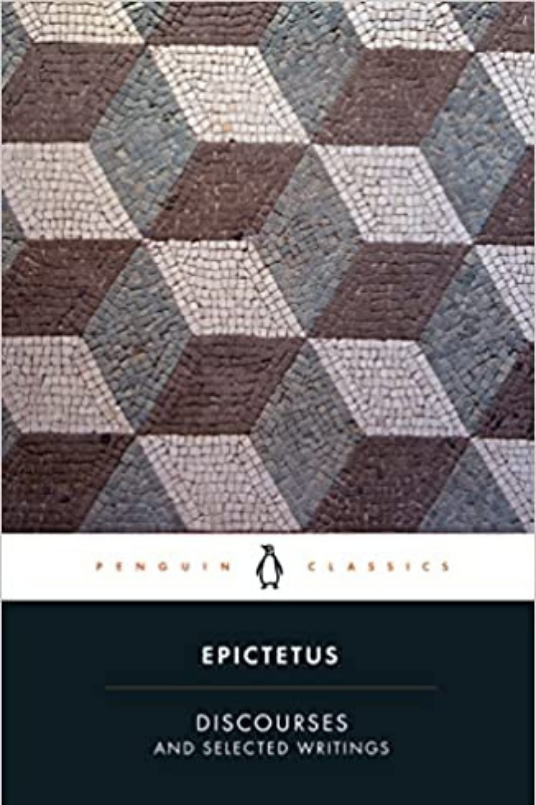It’s another book that stood the test of time (and will likely keep doing so for thousands of years). It was written almost 2,000 years ago and people are still recommending it and reading it.
It’s philosophy that we can understand and use on a daily basis.
If you are into Stoicism, philosophy, getting wiser, and personal growth, you will enjoy this book.
Flow: 5/5
Actionability: 5/5
Mindset: 5/5
Some of My Highlights:
“We know who his owner was; his name was Epaphroditus, and Epictetus makes mention of him several times, not exactly in complimentary terms, but not with any hint of bitterness either.”
“A former slave himself, after manumission he rose to the position of Nero’s secretary in charge of petitions; later he would serve Domitian in the same capacity.”
“Epictetus came to appreciate in full the ambiguities of power, and learned to distinguish real freedom from counterfeit.”
“That Epaphroditus allowed Epictetus considerable freedom of movement and association is implied by his attendance at the lectures of Musonius Rufus.”
“That a Greek slave should be the acknowledge maitre a penser of a Roman emperor illustrates in a most literal way the famous line of the poet Horace: ‘captive Greece captured her uncivilized captor [i.e. Rome].'”
“Reason is unique among the faculties assigned to us in being able to evaluate itself – what it is, what it is capable of, how valuable it is – in addition to passing judgment on others.”
“Why not hold out your neck the way Lateranus did at Rome, when condemned by Nero to be beheaded? He held out his neck willingly to take the blow – but the blow was deficient, so he recoiled a bit, but then had enough self-command to offer his neck a second time.”
“I must be exiled; but is there anything to keep me from going with a smile, calm and self-composed?”
“In short, reflection will show that people are put off by nothing so much as what they think is unreasonable, and attracted by nothing more than what to them seems reasonable.”
“But this not only involves weighing the value of externals, it also means considering what agrees with our own, individual nature.”
“Taking account of the value of externals, you see, comes at some cost to the value of one’s own character.”
“We must endure a winter training, and can’t be dashing into situations for which we aren’t prepared yet.”
“In short, we do not abandon any discipline for despair of ever being the best in it.”
“For wherever the perfection of anything tends, progress is always an approach towards the same thing.”
“What is the goal of virtue, after all, except a life that flows smoothly?”
“…aim to be perfect also in the practice of attention and withholding judgment.”
“Don’t put your purpose in one place and expect to see progress made somewhere else.”
“When someone caught in an argument hardens to stone, there is just no more reasoning with them.”
“Why should I worry about what happens if I am armed with the virtue of fortitude?”
“If being related to the emperor or any of the other great ones at Rome is enough to live without fear, in privilege and security, shouldn’t having God as our creator, father and defender protect us from even more of the trouble and anxiety?”
“Old men like us, you know, when we see children at play, like nothing better than to join them in their game.”
“Freedom, you see, is having events go in accordance with our will, never contrary to it.”
“He arranged for there to be summer and winter, abundance and lack, virtue and vice – all such opposites meant for the harmony of the whole;”
“The gods have released you from accountability for your parents, your siblings, your body, your possessions – for death and for life itself. They made you responsible only for what is in your power – the proper use of impressions.”
